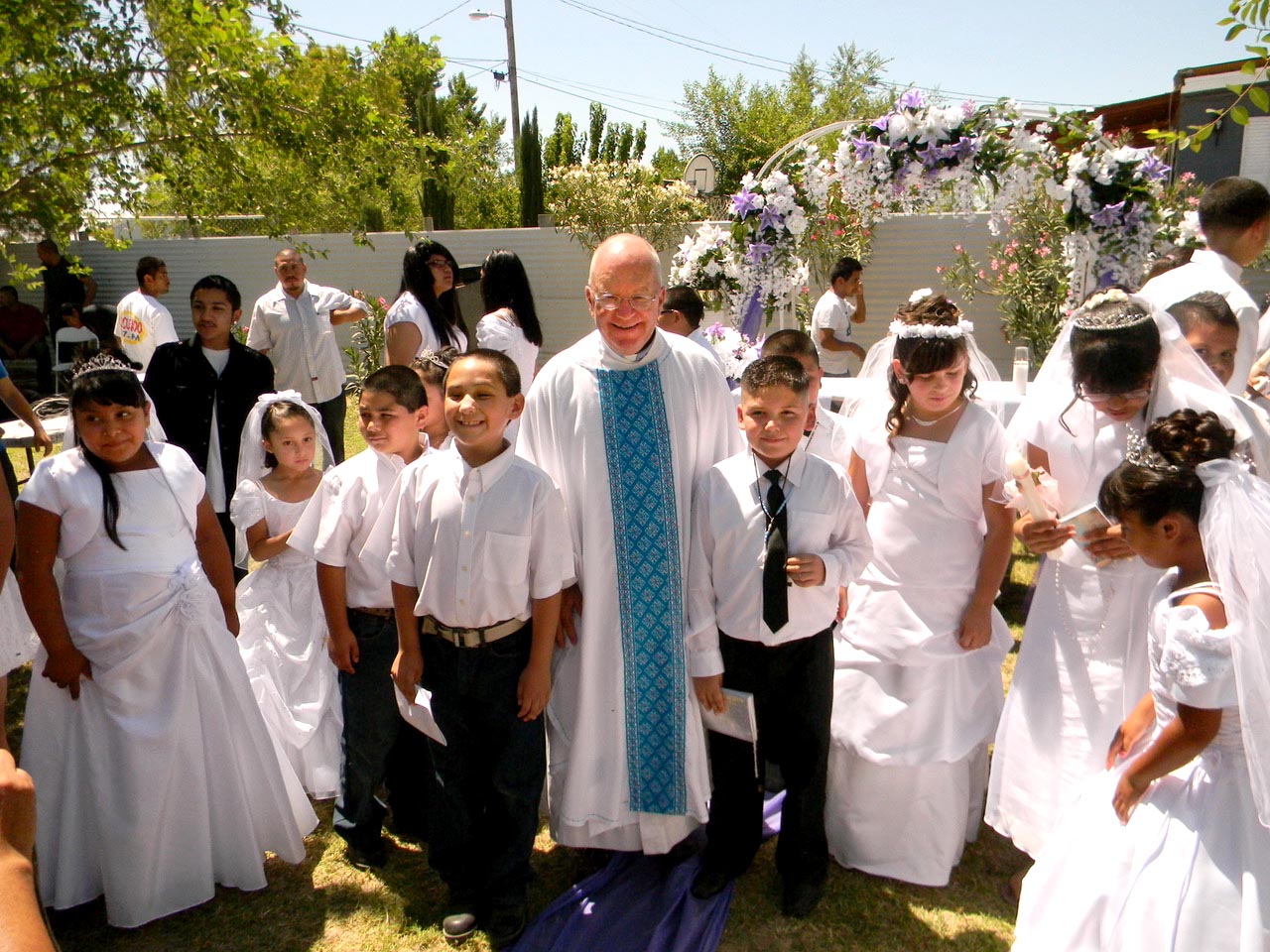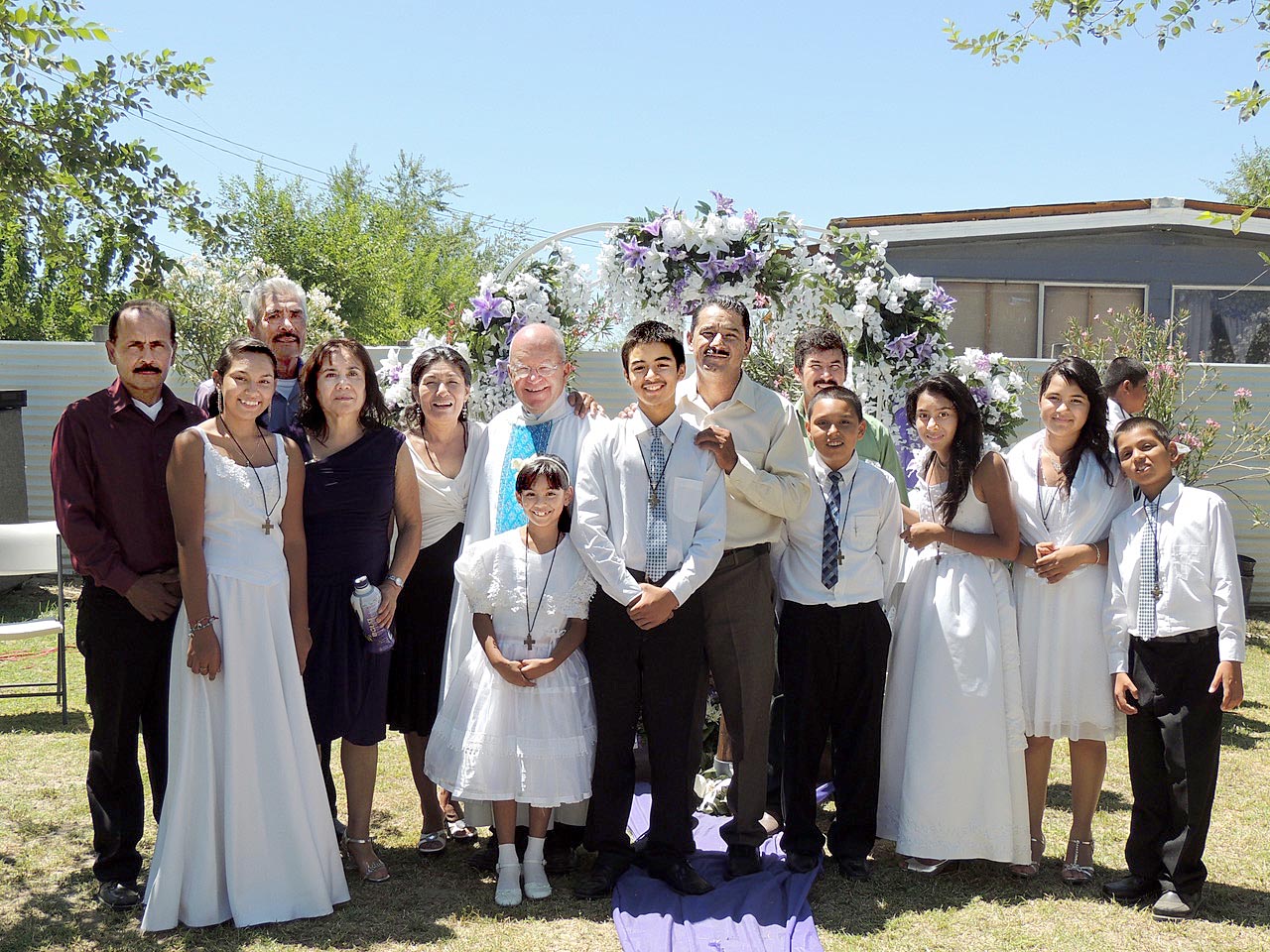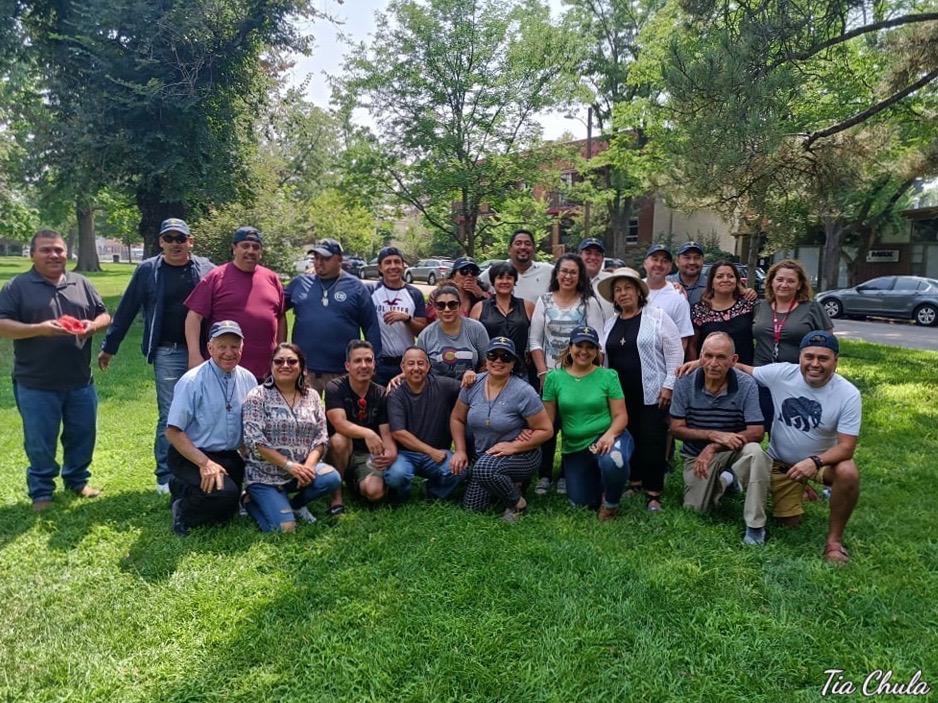Padre Migrante: Invitation or obligation? – Invitación u obligación
¿Invitación u Obligación?
El sentido de obligación de los migrantes es abrumador. Se les han impuesto inmensas barreras causándoles un inmenso sentido de indignidad. Estas barreras llevan a acciones disciplinarias que le niegan a la gente el acceso a la gracia de la Eucaristía y la Reconciliación. Esto no significa minimizar las actitudes necesarias para recibir los sacramentos, pero debemos reflexionar más sobre la carta de los Apóstoles a los Gentiles: “Fue el parecer del Espíritu Santo y el nuestro no imponerles ninguna otra carga fuera de las indispensables” (Hechos 15,28).
Una pareja que había estado casada por el civil por siete años y tenían dos niños recibió información equivocada por parte de un sacerdote que les dijo que no podían casarse porque no estaban confirmados. Cuando preguntaron qué necesitaban para recibir la Confirmación, el sacerdote les dijo que no podían participar en las clases de Confirmación porque estaban viviendo en pecado y no estaban casados por la Iglesia. Esto puede parecer humorístico, si no fuera tan trágico.
Es importante establecer requisitos básicos para el matrimonio. Los requisitos necesitan estar de acuerdo con la realidad de la gente de fe. No deben ser obstáculos para los migrantes que buscan recibir los sacramentos. Se necesita tomar en cuenta las dificultades de las largas horas de trabajo, la inconsistencia de los horarios y la movilidad del trabajador migrante. A menudo, las parroquias proveen muy pocas oportunidades para las clases de preparación u opciones para aquellos que no pueden participar cuando se ofrecen los programas.
Es muy común encontrarse con parejas que viven juntos en relaciones fieles que no han sido reconocidas por la Iglesia. Para estas parejas, es muy difícil encontrar sacerdotes que les ayuden a casarse por la Iglesia. A menudo se les niega participar en actividades de la iglesia como por ejemplo, no pueden ser padrinos porque no están casados por la Iglesia. Sin embargo, cuando piden casarse por la Iglesia, encuentran barreras para casarse.
El sacerdote en la iglesia debe considerar cada contacto con los migrantes como una oportunidad para invitarlos y acogerlos a la gracia de Cristo. Es incorrecto preguntarle a una pareja si están casados por la Iglesia cuando no se está dispuesto a ayudarles a arreglar su unión en la Iglesia. El sacerdote debe decir: “Como no están casados por la Iglesia, ¿qué podemos hacer para arreglar su unión?” Después uno debe estar dispuesto a guiarlos en el proceso del matrimonio por la Iglesia.
Cuando pueden asistir a misa, muchos de los migrantes escuchan sermones que los hacen sentir culpables y avergonzados. Les dicen que no son buenos católicos porque no van a misa con regularidad o por que les falta algo más en sus vidas. Los migrantes tienen una vida muy difícil, separados de su familia y amigos. Trabajan largas horas y viven en ambiente foráneo que los considera sin habilidades ni educación. Además, muchas veces escuchan desde el púlpito que son infieles. Aún así, son Cristo: “Porque tuve hambre y ustedes me alimentaron; tuve sed y ustedes me dieron de beber. Pasé como forastero y ustedes me recibieron en su casa” (Mt. 25,35).
Al escuchar a los migrantes contar sus historias, uno se maravilla de la unión que los pobres tienen con la fe católica. Con una catequesis cuestionable, poca atención pastoral y barreras para recibir los sacramentos, es increíble el arraigo que tiene la comunidad migrante con el catolicismo.
(Mañana: El Derecho a Recibir los Sacramentos)
Invitation or obligation?
The migrants’ sense of obligation is overwhelming. Heavy burdens have been placed on people that lead to an intense sense of unworthiness. These burdens are laced with disciplines that deny people access to the grace of Eucharist and Reconciliation. This is not to trivialize proper attitudes necessary for receiving the sacraments, but we need to reflect more on the letter of the Apostles to the Gentiles, “It is the decision of the Holy Spirit, and ours too, not to lay on you any burden beyond that which is strictly necessary” (Acts 15:28).
One couple who had been married civilly for seven years and have two children were misinformed by a priest that they could not be married because they had not been Confirmed. When they asked what they needed to do to receive Confirmation, he said they could not enter the Confirmation classes because they were living in sin and not married in the Church. This would appear humorous if it were not so tragic.
It is important to establish basic requirements for marriage. The requirements need to reflect the life situations of people of faith. They should not become obstacles to migrants looking to receive the gift of sacrament. Consideration is needed for the difficulties of long hours of work, the inconsistency of work schedules, and the mobility of the migrant worker. Often parishes provide very limited opportunities for preparation classes or options for those unable to come at the times that programs are offered.
It is quite common to meet couples living in committed faithful relationships that simply have not been recognized by the Church. For many such unions, it is difficult to find church ministers who help them regularize their marriage in the Church. They often are denied access to take part in activities of the church such as being godparents or sponsors for sacraments because they are not married in the church, yet when they seek sacramental marriage, they experience barriers to regularizing their marriage in the Church.
The minister in the church needs to view each contact with the migrant as an opportunity to invite and welcome the person to the grace of Christ. It is wrong to ask people if they are married in the Church if one is not ready to invite them to regularize their union in the Church. The minister should not ask the question if he is not ready to say, “Since you are not married in the Church, what can we do to regularize your union?” Then one needs to be willing to walk them through the process to get married in the Church.
When they are able to attend Mass, many migrants hear sermons that heap shame and guilt on them. They are told that they are not good Catholics because their attendance is irregular or because of some other lack in their lives. Migrants live a hard life, separated from family and friends. They work long hours, and they live in a foreign environment that calls them unskilled and uneducated. Moreover, from the pulpit they hear that they are unfaithful. Yet, they are Christ, “When I was hungry you gave me to eat…..” (Mt. 25:35ff).
Listening to migrants tell their stories makes one marvel at the attachment of the poor to the Catholic faith. With questionable catechesis, poor pastoral attention, barriers to receiving the sacraments, the Catholicism deeply rooted in the migrant community is amazing.
(Tomorrow: The right to receive the sacraments)
Sign up here to receive Padre Migrante blog posts via email.
“Sign up here to receive Padre Migrante blog posts via email.
Oh Jesús, tú nos llamas: “Síganme”. Bendice, Señor, a todos los que acogen tu llamado. Puede que el camino no sea fácil, pero tenemos la confianza de que todo es posible si caminamos contigo. Que este viaje nos abra los ojos a las maravillas de tu amor por nosotros. Oramos por toda tu gente, por todos los creyentes e incrédulos, por los líderes y seguidores. Oramos por la sanación, el perdón, la compasión, la justicia y la paz. Oramos para que, al seguirte, nosotros también podamos ser pescadores de hombres. Bendícenos en nuestro viaje.
O Jesus, you call us, “Come after me.” Bless, O Lord, all who welcome your call. The path may not be easy, but we have confidence that all things are possible if we walk with you. May this journey, open our eyes to the wonders of your love for us. We pray for all your people, for all believers and unbelievers, for leaders and followers. We pray for healing, for forgiveness, for compassion, for justice, for peace. We pray that as we follow you, we too can be fishers of men. Bless us on our journey.




